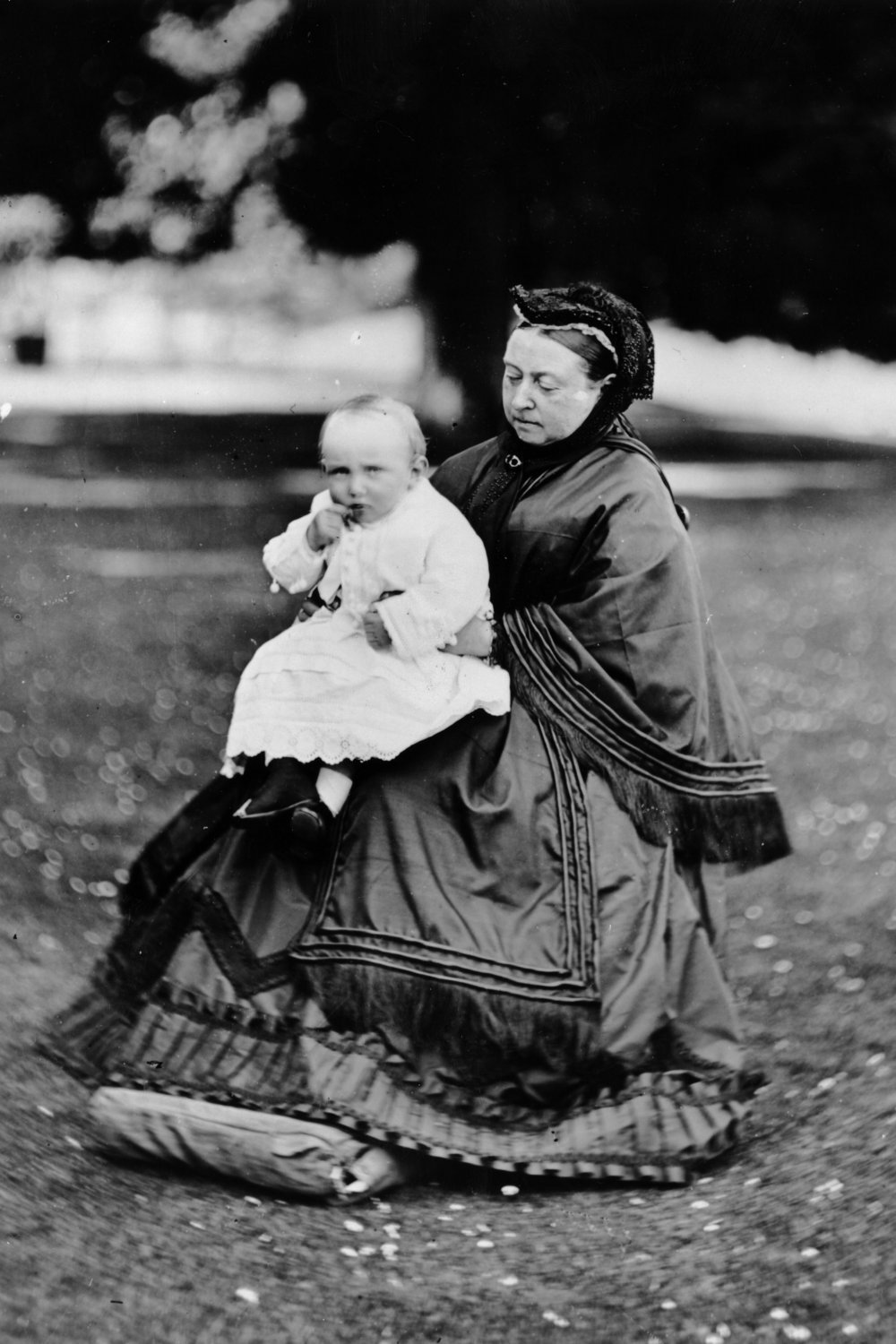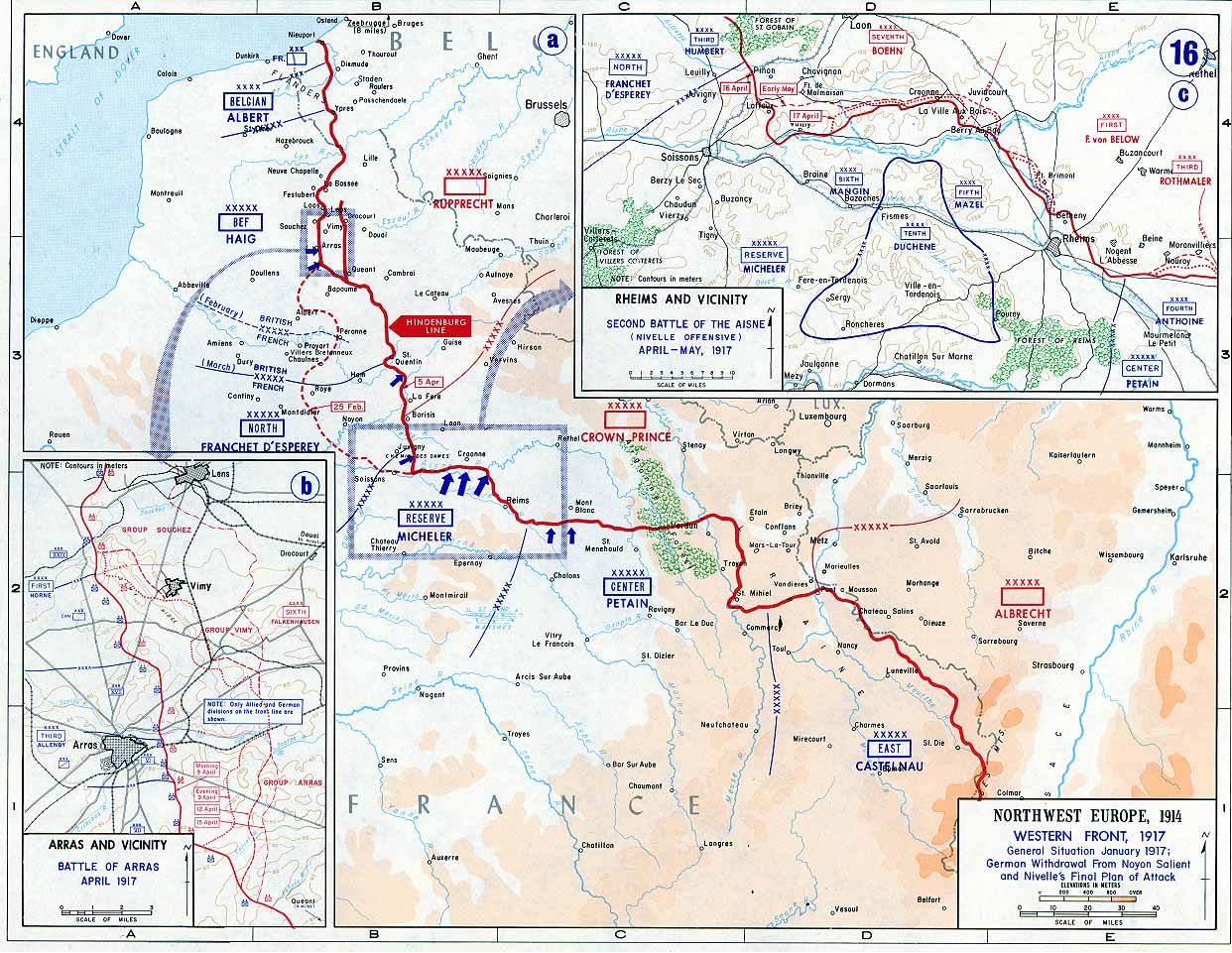|
Karl Von Einem
Karl Wilhelm Georg August von Einem genannt von Rothmaler (1 January 1853 – 7 April 1934) was the commander of the German 3rd Army during the First World War and served as the Prussian Minister of War responsible for much of the German military buildup prior to the outbreak of the war. Life and career Born in Herzberg am Harz, Einem served in the Prussian army for much of his life when he was appointed Minister of War in 1903. During his six years of service, Einem oversaw the reorganization of the German army building much of the military's heavy armament in preparation for modern warfare, specifically the introduction of the machine gun and modern heavy artillery. In 1909, Einem was appointed commander of VII Corps serving under the command of Gen. Karl von Bülow's 2nd Army later taking part in the First Battle of the Marne soon after German entry into World War I in August 1914. Assigned to France, Einem succeeded Gen. Max von Hausen as commander of the Third Army i ... [...More Info...] [...Related Items...] OR: [Wikipedia] [Google] [Baidu] |
Herzberg Am Harz
Herzberg am Harz (Esperanto: ) is a town in the Göttingen (district), Göttingen district of Lower Saxony, Germany. Geography Herzberg is situated on the southwestern rim of the Harz mountain range and the Harz National Park. Natural monuments in the surrounding area include the Unicorn Cave, the Karst Trail, and the Rhume Spring. The town centre is located on the Sieber (river), Sieber river, about northeast of Göttingen and southeast of the state capital Hanover. The municipal area comprises the villages of Lonau, Pöhlde, Scharzfeld, and Sieber (Herzberg am Harz), Sieber. History Herzberg Castle in the Duchy of Saxony was first mentioned in an 1143 deed. A hunting lodge at the site was already erected from 1024 to 1029 by King Lothair II, Holy Roman Emperor, Lothair II. It was seized by the Saxon House of Welf, Welf dynasty in 1144 and in 1158 became a property of Duke Henry the Lion with consent of the House of Hohenstaufen, Hohenstaufen emperor Frederick I, Holy Ro ... [...More Info...] [...Related Items...] OR: [Wikipedia] [Google] [Baidu] |
Max Von Hausen
Max Clemens Lothar Freiherr von Hausen (December 17, 1846 – March 19, 1922) was a German military officer during the First World War. He participated in the Austro-Prussian and Franco-German Wars and became ''Generaloberst'' of Saxon troops and War Minister in the Kingdom of Saxony. At the beginning of the First World War, he was the head of the Third Army which he led during the Battles of the Frontiers, Charleroi, and the Marne. He was relieved of his command because of illness in September 1914. Life Early life Max Clemens Lothar von Hausen was born on the 17th December 1846 in Dresden-Neustadt as the second son of Clemens von Hausen and Anna Wilhelmine von Ammon. His mother Anna was the daughter of the surgeon and opthalmologist Friedrich August von Ammon. Through his mother he was also a great-grandson of the protestant theologian Christoph Friedrich von Ammon by whom he was baptized. Military career Coming from a military family Hausen entered the Saxon army ... [...More Info...] [...Related Items...] OR: [Wikipedia] [Google] [Baidu] |
Order Of The Black Eagle
The Order of the Black Eagle () was the highest order of chivalry in the Kingdom of Prussia. The order was founded on 17 January 1701 by Elector Friedrich III of Brandenburg (who became Friedrich I of Prussia, Friedrich I, King in Prussia, the following day). In his Dutch exile after World War I, deposed Emperor Wilhelm II of Germany, Wilhelm II continued to award the order to his family. He made his second wife, Hermine Reuss of Greiz, Princess Hermine Reuss of Greiz, a Lady in the Order of the Black Eagle. Overview The statutes of the order were published on 18 January 1701, and revised in 1847. Membership in the Order of the Black Eagle was limited to a small number of knights, and was divided into two classes: members of reigning houses (further divided into members of the House of Hohenzollern and members of other houses, both German and foreign) and capitular knights. Before 1847, membership was limited to nobles, but after that date, capitular knights who were not noble ... [...More Info...] [...Related Items...] OR: [Wikipedia] [Google] [Baidu] |
Army Group German Crown Prince
The Army Group German Crown Prince or Army Group B () was an Army Group of the German Army, which operated on the Western Front under command of Wilhelm, German Crown Prince, between 1 August 1915 and 11 November 1918 during World War I. Composition (1 August 1915 – April 1917) * German 5th Army (Wilhelm, German Crown Prince then Ewald von Lochow then Max von Gallwitz) * German Armee-Abteilung A ( Ludwig von Falkenhausen then Karl Ludwig d'Elsa then Bruno von Mudra) * German Armee-Abteilung B ( Hans Gaede then Erich von Gündell) * German Armee-Abteilung C ( Hermann von Strantz then Max von Boehn) * German 3rd Army ( Karl von Einem) : 26 September - 7 December 1915 and again since July 1916 Composition (April 1917 – February 1918) * German 7th Army ( Max von Boehn) * German 1st Army (Fritz von Below) * German 3rd Army ( Karl von Einem) * German 5th Army (Max von Gallwitz) Composition (4 February 1918 – 11 November 1918) * German 18th Army ( Oskar von Hu ... [...More Info...] [...Related Items...] OR: [Wikipedia] [Google] [Baidu] |
Wilhelm, German Crown Prince
Wilhelm, German Crown Prince, Crown Prince of Prussia (Friedrich Wilhelm Victor August Ernst; 6 May 1882 – 20 July 1951) was the eldest child of the last German emperor, Wilhelm II, and his consort Augusta Victoria of Schleswig-Holstein, and thus a great-grandson of Queen Victoria, and distant cousin to many British royals, such as Queen Elizabeth II and King Charles III. As Emperor Wilhelm's heir, he was the last Crown Prince of the German Empire and the Kingdom of Prussia, until the German Revolution of 1918-1919, abolition of the monarchy. Wilhelm became crown prince at the age of six in 1888, when his grandfather Frederick III, German Emperor, Frederick III died and his father became emperor. He was crown prince for 30 years until the Abdication of Wilhelm II, fall of the empire on 9 November 1918. During World War I, he commanded the 5th Army (German Empire), 5th Army from 1914 to 1916 and was commander of the Army Group German Crown Prince (German Empire), Army Group G ... [...More Info...] [...Related Items...] OR: [Wikipedia] [Google] [Baidu] |
John J
John is a common English name and surname: * John (given name) * John (surname) John may also refer to: New Testament Works * Gospel of John, a title often shortened to John * First Epistle of John, often shortened to 1 John * Second Epistle of John, often shortened to 2 John * Third Epistle of John, often shortened to 3 John People * John the Baptist (died ), regarded as a prophet and the forerunner of Jesus Christ * John the Apostle (died ), one of the twelve apostles of Jesus Christ * John the Evangelist, assigned author of the Fourth Gospel, once identified with the Apostle * John of Patmos, also known as John the Divine or John the Revelator, the author of the Book of Revelation, once identified with the Apostle * John the Presbyter, a figure either identified with or distinguished from the Apostle, the Evangelist and John of Patmos Other people with the given name Religious figures * John, father of Andrew the Apostle and Saint Peter * Pope John ( ... [...More Info...] [...Related Items...] OR: [Wikipedia] [Google] [Baidu] |
Erich Ludendorff
Erich Friedrich Wilhelm Ludendorff (; 9 April 1865 – 20 December 1937) was a German general and politician. He achieved fame during World War I (1914–1918) for his central role in the German victories at Battle of Liège, Liège and Battle of Tannenberg, Tannenberg in 1914. After his appointment as Generalquartiermeister, First Quartermaster General of the German General Staff in 1916, Ludendorff became Germany's chief policymaker in a Oberste Heeresleitung, ''de facto'' military dictatorship until the country's defeat in 1918. Later during the years of the Weimar Republic, he took part in the failed 1920 Kapp Putsch and Adolf Hitler's 1923 Beer Hall Putsch, thereby contributing significantly to the Adolf Hitler's rise to power, Nazis' rise to power. Erich Ludendorff came from a non-noble family in Kruszewnia (hence the lack of a "Nobiliary_particle, von" or "Nobiliary_particle, zu" in his name), in the Prussian Province of Posen. After completing his education as a cadet, h ... [...More Info...] [...Related Items...] OR: [Wikipedia] [Google] [Baidu] |
Second Battle Of The Aisne
The Second Battle of the Aisne ( or , 16 April – mid-May 1917) was the main part of the Nivelle Offensive, a French Third Republic, Franco-British attempt to inflict a decisive defeat on the German Empire, German armies in France. The Entente strategy was to conduct offensive (military), offensives from north to south, beginning with an attack by the British Expeditionary Force (World War I), British Expeditionary Force (BEF) then the main attack by two French army groups on the Aisne. General Robert Nivelle planned the offensive in December 1916, after he replaced Joseph Joffre as Commander-in-Chief of the French Army. The objective of the attack on the Aisne was to capture the prominent , east–west ridge of the Chemin des Dames, north-east of Paris and then advance northwards to capture the city of Laon. When the French armies met the British advancing from the Arras front, the Germans would be pursued towards Belgium and the German frontier. The offensive began on 9 April ... [...More Info...] [...Related Items...] OR: [Wikipedia] [Google] [Baidu] |
Philippe Petain
Philippe is a masculine given name, cognate to Philip, and sometimes also a surname. The name may refer to: * Philippe of Belgium (born 1960), King of the Belgians (2013–present) * Philippe (footballer) (born 2000), Brazilian footballer * Prince Philippe, Count of Flanders, father to Albert I of Belgium * Philippe d'Orléans (other), multiple people * Philippe A. Autexier (1954–1998), French music historian * Philippe Blain, French volleyball player and coach * Philippe Najib Boulos (1902–1979), Lebanese lawyer and politician * Philippe Broussard (born 1963), French journalist * Philippe Coutinho, Brazilian footballer * Philippe Daverio (1949–2020), Italian art historian * Philippe Djian (born 1949), French author * Philippe Dubuisson-Lebon, Canadian football player * Philippe Ginestet (born 1954), French billionaire businessman, founder of GiFi * Philippe Gilbert, Belgian bicycle racer * Philippe Noiret, French actor * Philippe Petit, French performer ... [...More Info...] [...Related Items...] OR: [Wikipedia] [Google] [Baidu] |



